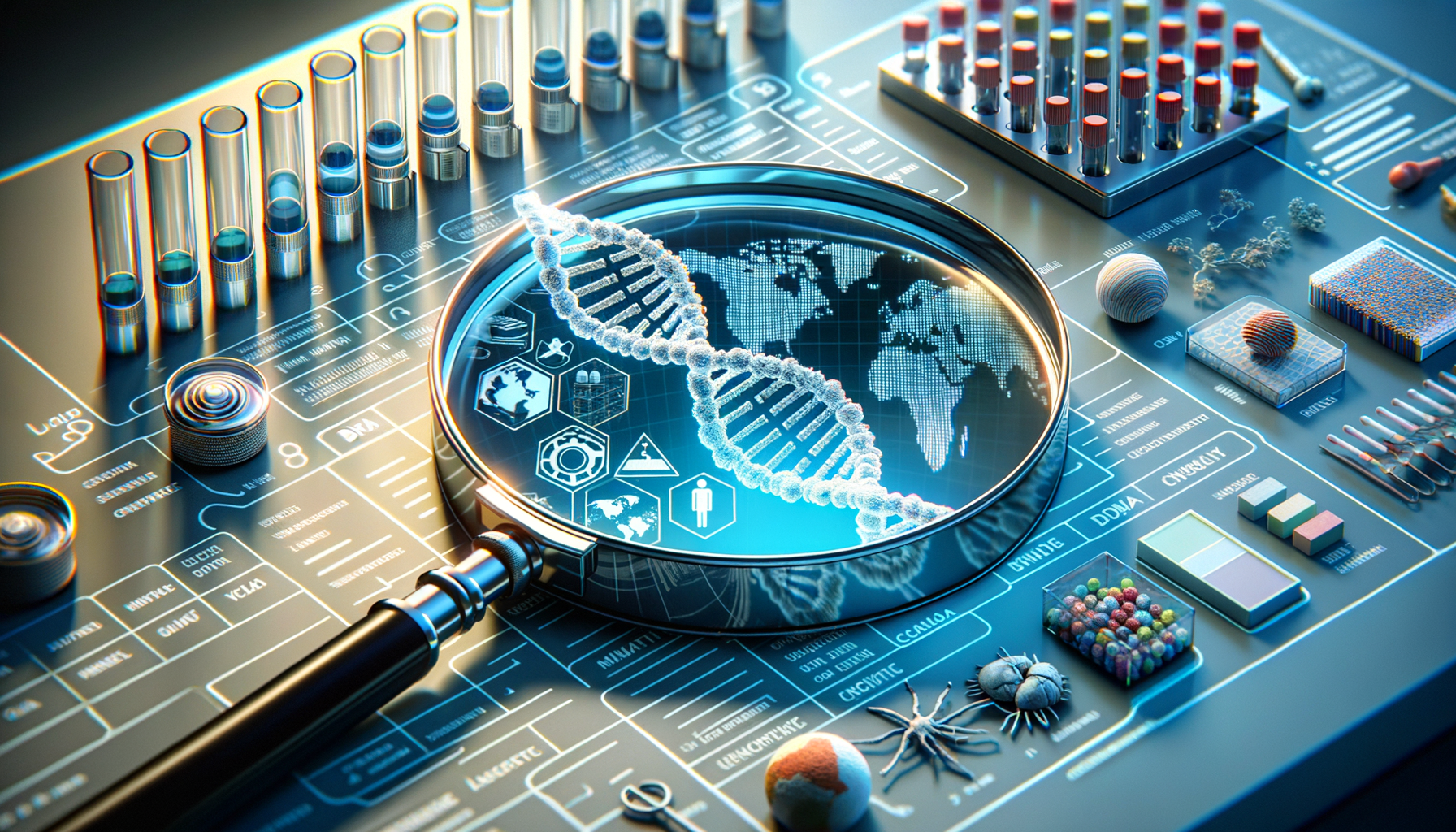Dive into Your DNA – Uncover Ancestry and More
DNA testing offers a window into our genetic past and present, revealing insights into ancestry, health, and more.

Introduction to DNA Testing
DNA testing has emerged as a fascinating field that offers individuals a glimpse into their genetic blueprint. By analyzing the DNA, which is the carrier of genetic information, scientists can uncover a wealth of information about an individual’s ancestry, health predispositions, and even traits. The relevance of DNA testing has grown exponentially, with applications ranging from genealogy to personalized medicine. This article delves into the various aspects of DNA testing, shedding light on its significance and potential.
The Science Behind DNA Testing
At the core of DNA testing lies the intricate structure of DNA itself. DNA, or deoxyribonucleic acid, is composed of four nucleotides: adenine, thymine, cytosine, and guanine. These nucleotides pair up in a specific manner to form the iconic double helix structure. DNA testing involves extracting DNA from a sample, often saliva or a cheek swab, and analyzing specific regions known as markers. These markers can reveal variations that are unique to individuals or shared among populations.
There are several types of DNA tests, each serving a different purpose:
- Autosomal DNA tests: These tests examine the 22 pairs of non-sex chromosomes and are commonly used for ancestry and genealogical purposes.
- Y-DNA tests: Focused on the Y chromosome, these tests trace paternal lineage and are passed from father to son.
- mtDNA tests: Mitochondrial DNA tests explore maternal lineage, as mtDNA is passed from mothers to their children.
Understanding these types allows individuals to choose the most suitable test for their needs, whether they are exploring their family tree or assessing health risks.
Unraveling Ancestry and Genealogy
One of the most popular applications of DNA testing is genealogy, where individuals seek to uncover their ancestral roots. By comparing DNA markers with large databases, individuals can identify genetic relatives and trace their lineage across generations. This has led to remarkable discoveries, such as connecting with distant cousins or uncovering unknown branches of the family tree.
Genealogical DNA testing can provide insights into ethnic backgrounds, revealing percentages of various ancestries. For instance, a person might discover they have a mix of European, African, and Asian ancestry, offering a more comprehensive understanding of their heritage.
Furthermore, DNA testing can assist in solving historical mysteries. It has been instrumental in identifying remains of historical figures, confirming or refuting familial ties, and even aiding in criminal investigations. The ability to connect the past with the present through DNA testing makes it a powerful tool for both personal and historical exploration.
Health Insights Through DNA Testing
Beyond ancestry, DNA testing has significant implications for health and wellness. Genetic testing can reveal predispositions to certain health conditions, allowing individuals to make informed lifestyle and healthcare decisions. For example, a DNA test might indicate a higher risk for conditions such as heart disease, diabetes, or certain types of cancer.
These insights enable preventive measures, such as regular screenings or lifestyle modifications, to mitigate potential health risks. Additionally, DNA testing can guide personalized medicine, where treatments and medications are tailored to an individual’s genetic makeup, enhancing efficacy and reducing adverse effects.
While the potential of DNA testing in healthcare is immense, it is essential to approach the results with caution. Genetic predispositions do not guarantee the development of a condition, and environmental factors also play a crucial role. Consulting healthcare professionals for interpretation and guidance is recommended to make the most of the information provided by DNA testing.
Ethical Considerations and Privacy Concerns
As with any technology that delves into personal information, DNA testing raises ethical and privacy concerns. The collection and storage of genetic data pose risks if not handled with care. Questions about who owns the genetic information and how it can be used are central to the debate surrounding DNA testing.
Many companies that offer DNA testing services have privacy policies in place, but it is crucial for individuals to understand the terms before sharing their genetic data. Potential concerns include data breaches, unauthorized access, and the use of genetic information in ways that individuals did not consent to.
Furthermore, the interpretation of genetic data can have profound implications for individuals and their families. Discovering unexpected information, such as unknown familial relations or health risks, can have emotional and social impacts. It is important for individuals to be prepared for the outcomes of DNA testing and to seek support if needed.
In conclusion, while DNA testing offers valuable insights, it is imperative to weigh the benefits against the potential ethical and privacy challenges. Being informed and cautious can help individuals make the most of what DNA testing has to offer while safeguarding their personal information.